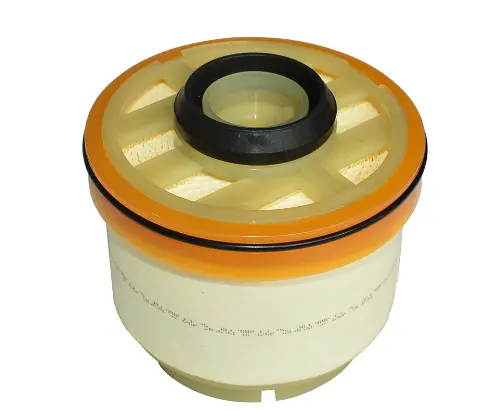Dic . 25, 2024 16:31 Back to list
Essential Guide to BMW Cabin Filters for Cleaner Air Quality
The Importance of BMW Cabin Filters A Comprehensive Overview
When it comes to maintaining a BMW, ensuring that all components of the vehicle function optimally is essential for a smooth and enjoyable driving experience. One critical but often overlooked component is the cabin filter, an element that plays a significant role in the comfort and safety of both drivers and passengers. This article will delve into the importance of BMW cabin filters, their functionality, when to replace them, and how they can impact your driving experience.
What is a Cabin Filter?
A cabin filter, sometimes referred to as a passenger compartment filter, is designed to purify the air entering the interior of your BMW. It traps dust, pollen, soot, and other particulates from the outside environment, ensuring that the air circulating within the vehicle is clean and healthy. In the case of BMW vehicles, high-quality cabin filters are engineered to fit seamlessly into the sophisticated air circulation systems that these cars are known for.
How Does a Cabin Filter Work?
The cabin filter typically sits in the airflow system of your vehicle, just before the air reaches the cabin. As the vehicle’s heating and air conditioning systems operate, air is drawn in from outside. The cabin filter ensures that any harmful contaminants, allergens, or pollutants are trapped before they can circulate through the vehicle. This is especially important for those with allergies or respiratory issues, as a clean cabin environment can substantially improve comfort and health.
The Importance of Regular Replacement
Over time, cabin filters accumulate dirt and debris, which can significantly reduce their effectiveness. A clogged or dirty filter may precipitate several issues, such as reduced airflow from the vents, unpleasant odors, and even the growth of mold and bacteria. For BMW owners, ignoring the condition of the cabin filter can lead to a decline in overall vehicle health and a compromise on driver and passenger comfort.
Most manufacturers, including BMW, recommend replacing the cabin filter every 12,000 to 15,000 miles or once a year, whichever comes first. However, driving conditions can impact this guideline. If you often drive in urban areas with heavy traffic, or in regions with high pollen levels or dust, more frequent replacements might be necessary.
Signs Your Cabin Filter Needs Replacement
bmw cabin filter

Recognizing when to replace your BMW's cabin filter is critical for maintaining a comfortable driving environment. Signs that it might be time for a replacement include
1. Decreased Airflow If you notice a significant reduction in airflow through the vents, it could indicate that the cabin filter is clogged.
2. Unpleasant Odors A persistent unpleasant smell in the cabin, especially when the air conditioning or heater is on, can be a sign of a dirty filter or even mold growth.
3. Increased Allergy Symptoms If you or your passengers begin to experience allergies or respiratory issues during or after driving, it could be due to contaminants that are not being filtered out effectively.
4. Visual Inspection If it's safe and feasible, removing and visually inspecting the cabin filter can provide immediate feedback on its condition.
How to Replace a BMW Cabin Filter
While the process can vary depending on the specific BMW model, replacing the cabin filter is a task that many DIY enthusiasts can undertake with the right tools and guidance. Generally, the replacement involves locating the filter compartment, removing the old filter, and installing a new one. It’s crucial to follow the manufacturer’s guidelines for the specific model year to ensure proper installation and function.
Alternatively, if you're not comfortable handling this yourself, visiting a certified BMW service center is an excellent option. Professionals can ensure that the replacement is conducted correctly and may also identify other potential maintenance issues.
Conclusion
The BMW cabin filter is a vital component that directly impacts the quality of air within your vehicle. Regular maintenance, including timely replacements, ensures a healthier environment for you and your passengers. By staying attentive to the signs of filter deterioration and understanding the benefits of clean air circulation, you can enhance your driving experience while preserving your BMW's performance. In the world of automotive care, small components like the cabin filter play a substantial role in ensuring a vehicle that is not just luxurious, but also safe and enjoyable to drive.
-
Toyota Corolla Oil Filter Price & Deals Affordable AC & Air Filters
NewsJun.10,2025
-
Car Air Filter Change How Often & Why Engine & Cabin Filter Guide
NewsJun.10,2025
-
Best 1 Inch Air Filters for Home & Office High Efficiency 1/2 & 2 Inch AC Filter Options
NewsJun.10,2025
-
Whole Home & House Air Filtration Supplier Expert Air Purification Solutions
NewsJun.10,2025
-
Affordable Diesel Engine Filter Price - Best Deals on Quality Parts
NewsJun.10,2025
-
Premium 20x25x5 Air Filter High-Efficiency Dust Removal
NewsJun.09,2025


